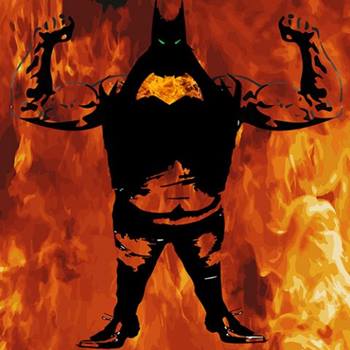July 19, 2017 by Jalin B. Johnson, Ed.D.
 You wouldn’t have a story without the good vs evil, but beyond the entertainment factor, have you dug deep into the bad guys’ backstories and explored what makes them tick?
You wouldn’t have a story without the good vs evil, but beyond the entertainment factor, have you dug deep into the bad guys’ backstories and explored what makes them tick?
While it may seem unconventional, we can learn a good deal about ourselves by looking at the ethical reasoning behind decisions made by some of pop-cultures reigning supervillains.
Yes, villains have ethics!
There is a psychological and a philosophical reason behind every decision a supervillain makes. The psychological part suggests how we create ethical judgments and the philosophical part shows how we justify these ethical judgments. Here’s a breakdown of a few of our top modern-day supervillains:
Vulture
In the 2017 Jon Watts Marvel Studios, Columbia Pictures and Pascal Pictures addition to the Spider-Man franchise, we are introduced to Vulture (alias Adrian Toomes). As in the Marvel comic character’s canon, Toomes battles his own demons; wavering at times between villainous ways and the righteous path.
In the cinematic version, he is an ‘everyday,’ hardworking guy who feels unfairly treated and cast-aside by the government. When presented with the opportunity to get ahead on his own terms, Toomes leads a team of other outcasts to reclaim leftover alien weaponry and parts in an effort to sell them on the underground market. His philosophical belief that he was wronged, leads him to break the rules set by the very government he protests, thus leading him into a life of crime.
Ares
In the 2017 Patty Jenkins DC Entertainment & Warner Bros. produced Wonder Women film, we see the how the perils of war influence the ethical reasoning behind our heroes featured nemesis. Although in New 52 DC canon, Wonder Woman (Diana) is the daughter of Zeus and Hippolyta (of Themyscira), in this cinematic box office hit, Diana is the daughter or Ares.
Focused on the mid to late 1930’s rise of Adolf Hitler and the Nazi regime, Ares (alias’ Sir. Patrick and God of War), hones in on the trouble with humanity – its taste for violence and destruction. On a campaign to prove his theory that this evil tendency resides in all of mankind, Ares, while living as Sir Patrick, rises in the ranks of the British government, increasing his psychological influence on others along the way. His ethical reasoning yields to decisions to both empower humans with weapons of mass destruction while watching them self-destruct to prove his point.
Ego
Likewise, within the 2017 James Gunn directed sequel of the big screen Guardians of the Galaxy series (Marvel Studios), there are some changes to canon to help show the conflict between right and wrong.
In the Dan Abnett and Andy Lanning created comics, our main character, Star Lord, is the son of J’son of Spartax. In the Guardians Vol. 2 adaptation, Star Lord (alias Peter Jason Quill), is the son of Ego.
A supervillain, set to maintain his legacy in the cosmos, Ego has made it his life’s work to create an offspring worthy of his gifts. He has decided that traveling the planets to find a partner with which to create a new life is a sound decision if only to meet his ultimate goal. His philosophical premise is that it is for the greater good, while showing little concern for those he leaves behind while on his quest.
In each of these snapshots, we see how ethical reasoning overshadows care and concern for others in the lives of some of pop-cultures reigning supervillains. Share with us how you relate to these – and other – comic supervillains. What are your ethics, and how do you justify them?
